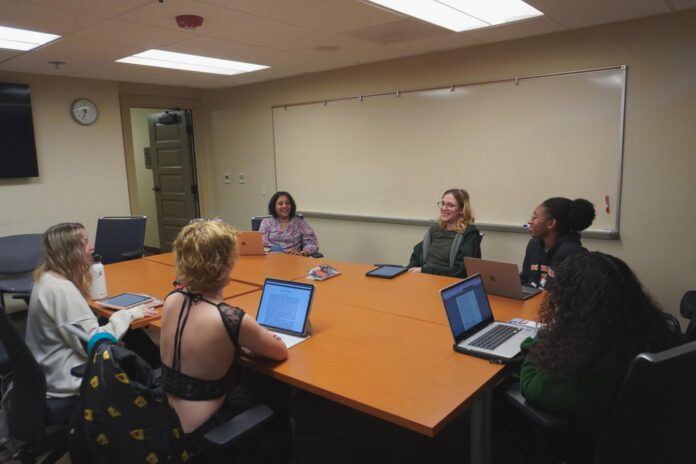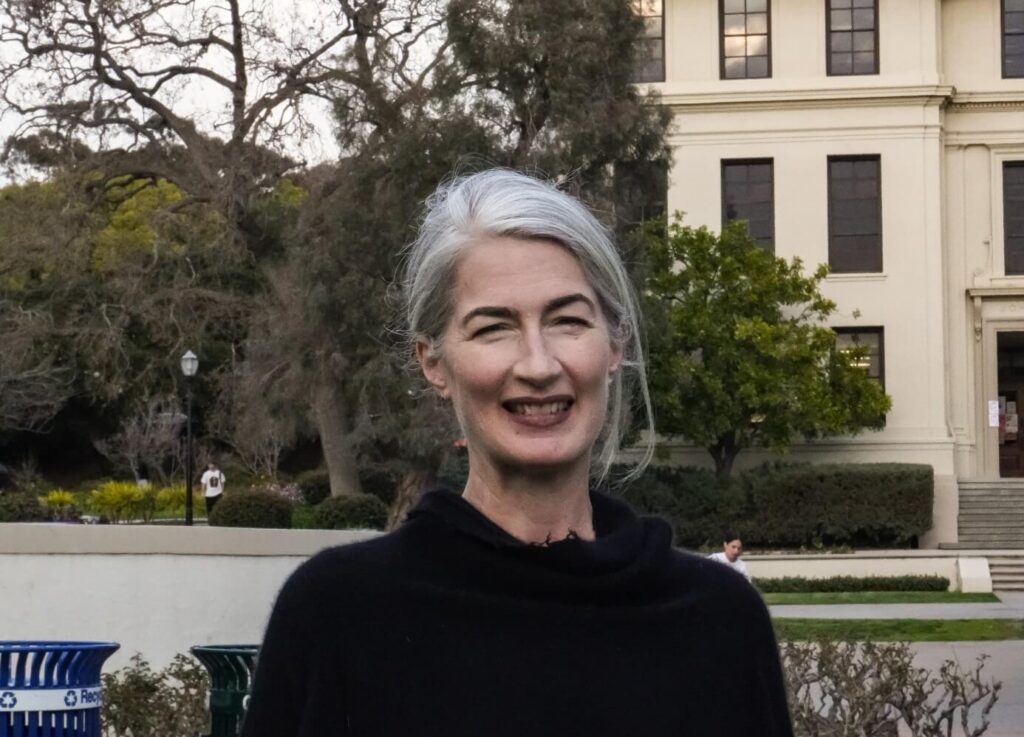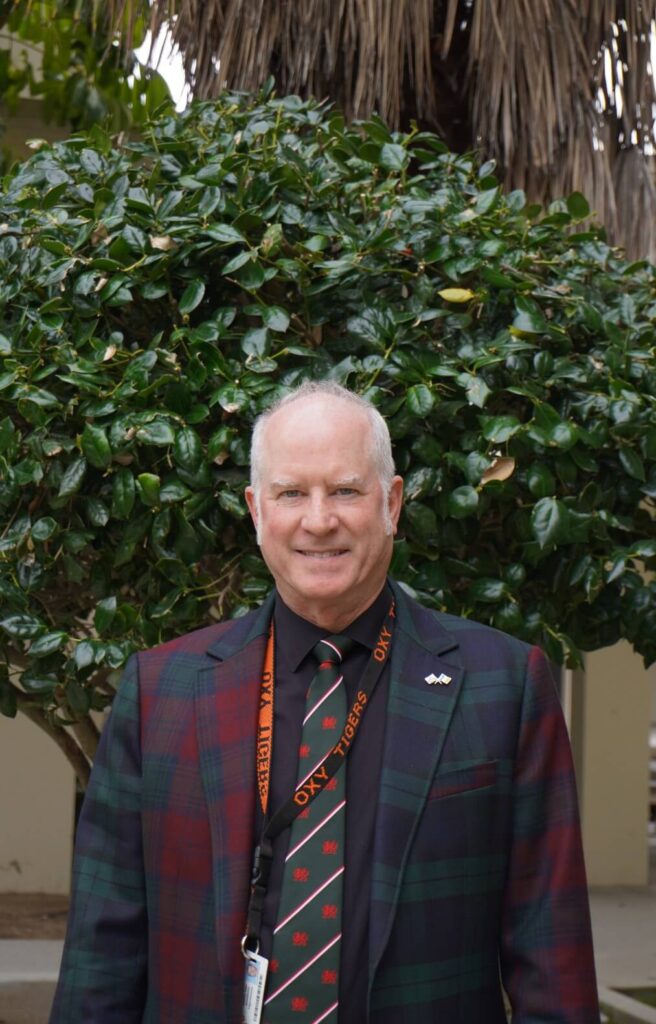
“Discipline and Desire: The History of Sexuality in the United States”; “How to Live in the Midst of Dying: Religion and Climate Change”; “It Ain’t Simply a Song and Dance: Reflections of Hollywood Musicals”: Opening up Course Counts, the web catalog of Occidental course offerings, opens up a world of niche topics thoughtfully taught by professors with a wide variety of specializations.
New course ideas come directly from faculty members, according to chair and non-voting member of the Academic Planning Committee (APC) Kathryn Leonard. Leonard is also an Associate Dean for Curricular Affairs and a computer science professor.
“I think curricular innovation happens in conversation between faculty, students, administration and the larger community of higher education. That said, almost all the specific curriculum comes from departments and the faculty in those departments, so in that sense, it is ground up,” Leonard said via email.
Step 1: Course Proposal
According to Leonard, the college administration can make suggestions and requests, but ultimately a faculty member has to make the move to propose a course.
The first step in course development requires professors to fill out a course proposal stating how the new class would relate to their departmental mission.
English professor Leila Neti said that her “Queer Fictions” class arose out of her expertise in post-colonial literature.
“It comes out of an awareness that queer literature tends to be framed primarily in terms of either American or European-centric context,” Neti said. “I wanted to kind of disrupt that narrative a little bit and think about how sexuality also has a kind of global narrative that doesn’t often get included.”

Neti said she made note of how the class would apply to campus-wide requirements and submitted the course for approval to the APC. According to Neti, professors generally add new courses every two to three years.
“One of the things that drives course offerings is course enrollment. This year is a really small class, so I probably won’t be teaching [“Queer Fictions”] next year because probably everybody who is interested in it took it already,” Neti said. “As students, if you’re interested in a course you should definitely take it because you should not count on it necessarily being around. The courses are largely driven by student demand.”
Step 2: APC Review
According to Leonard, the APC is composed of elected representatives from areas of study such as the arts, humanities and sciences, appointed members from the Faculty Council and Assistant Deans. Once a course proposal reaches the APC, they discuss and eventually decide on whether or not to approve the course.
Course approval is not the only role of the APC, however.
“[The APC] makes recommendations about position requests for tenure-line faculty and resident faculty, evaluates proposals about changes to majors and minors, evaluates new major proposals — basically anything to do with changes to the curriculum and allocation of permanent faculty lines,” Leonard said via email.
According to Leonard, when a course proposal needs revision, she reaches out to the department chair of the proposed course to discuss how to compromise on a proposal that both the department and the APC can agree on.
“It’s rare to reject a course (in fact, I don’t think it’s happened while I’ve been chair) because we are usually able to find an agreeable solution,” Leonard said via email.

Leonard said that many courses are taught the semester directly after they are approved.
“APC has approved courses in as short a time as a week when there is a staffing emergency, but the preferable process is more leisurely, usually within one semester’s time,” Leonard said via email.
Associate Professor of American Studies and Director of Writing Center & Programs Julie Prebel said that the topics of the Writing and Rhetoric Department (WRD) 201 courses, required of those who do not pass the first-stage writing portfolio, emerge directly from the faculty teaching the courses. In Spring 2024, the WRD 201 offerings included “The Body Politic: Writing in the Politics of Pleasure” and “Writing and the Rhetoric of Independent Film.”
Step 3: The Registrar Review
According to Prebel, the next stop after course proposals pass the APC review is the Registrar’s Office.
James Herr, the registrar of the college, said that the Registrar’s review of the course includes seeing if it is similar in content to two or three others that are already being offered at Occidental.
“We’re sort of like a backstop,” Herr said. “If something got through unintentionally, one of the things that we try to do is catch it and bring it back to the folks, could be the department chair, could be the APC.”
According to Herr, cross-listing is limited to the host department and one other department, so courses that try to cross-list with more than one department are considered out of the norm. Additionally, courses that attempt to satisfy more than two core areas are flagged by the Registrar, Herr said.
If a course comes through without any issues, Herr said it is added to the catalog and the administrative system.
“We’ve been doing that almost year-round. Right now, we’re still working on proposals that were recently approved by the APC,” Herr said. “There’s still some more that are in the pipeline that might be offered next year.”

Herr said that a draft of the catalog is released to students before advising week so that students will have a better opportunity to plan and decide under which catalog to declare their major based on changes in requirements.
According to Herr, proposals are not just for adding new courses but also for removing old ones.
“If faculty members are no longer here and their course work is not going to be picked up by the new faculty members, they’re removing those and focusing on some other new content,” Herr said.
Herr said that when new faculty members come in, he starts to see a lot of new course proposals come in as well.
“We’ve been hiring a lot of faculty lately, and so that means our numbers are probably a little high right now as opposed to what they might normally be,” Herr said. “That’s always a good thing. It keeps the curriculum fresh.”
According to Herr, the important thing to remember about the course approval process is that the faculty controls the curriculum they create, maintain and revise.
“All of these steps are faculty-driven, they’re all faculty members taking part in the approval process,” Herr said. “When it comes to us, we’re mostly from a functional standpoint, taking care of business.”
In a November email following the occupation of the Arthur G. Coons Administrative Center (AGC) by the Students for Justice in Palestine (SJP), President Harry Elam outlined a list of commitments by the college. One of the commitments stated that the college administration would support the faculty in their efforts to create a Middle Eastern and North African (MENA) Studies minor.
Leonard said that the APC would be happy to give feedback on curricular proposals and to work to bring together faculty with shared interests.
“A major or minor proposal would need to come from the faculty,” Leonard said via email. “Ideas for courses can come from anywhere (though usually they come from faculty), but ultimately a faculty member has to make the course proposal.”
Contact Ava LaLonde lalonde@oxy.edu
![]()






























